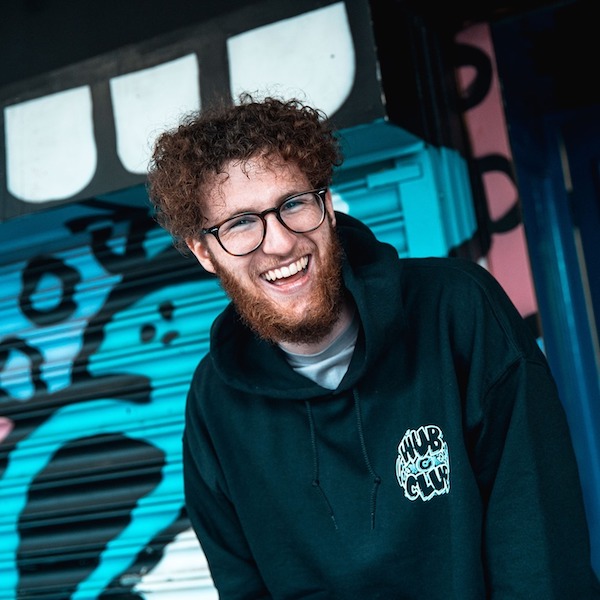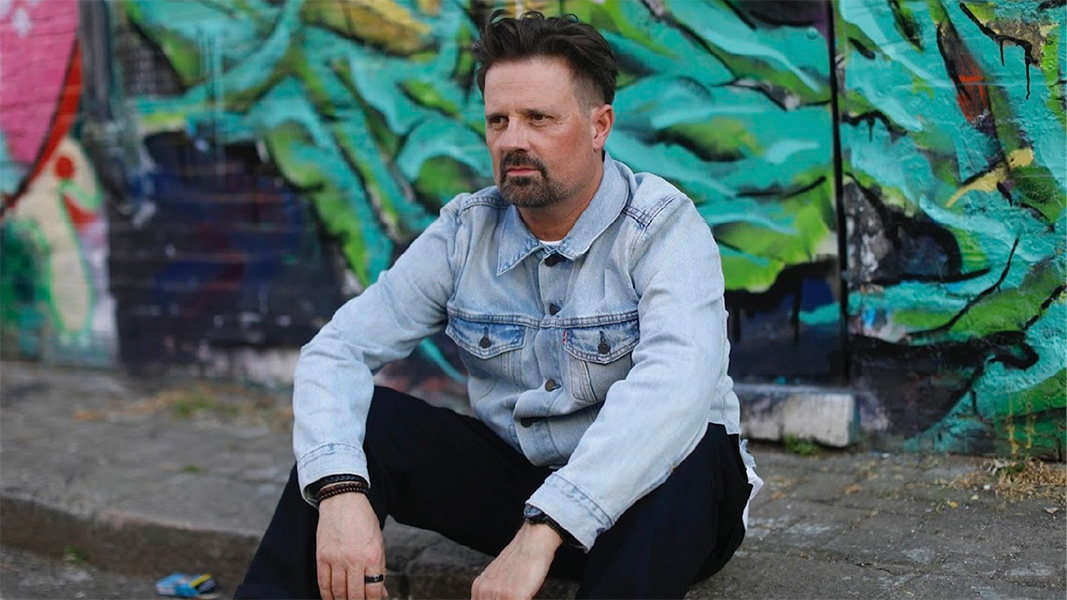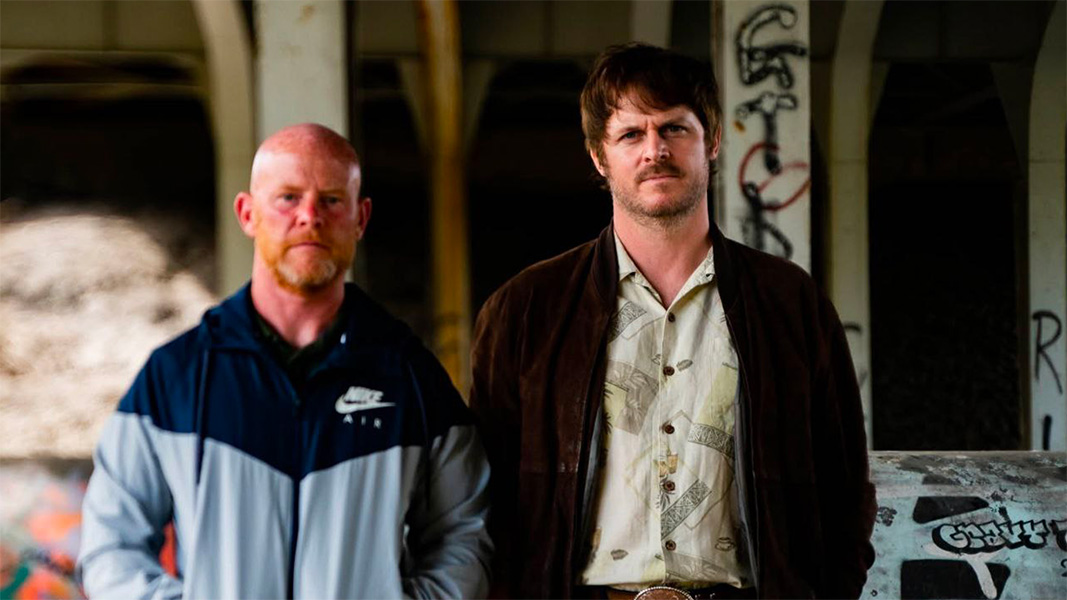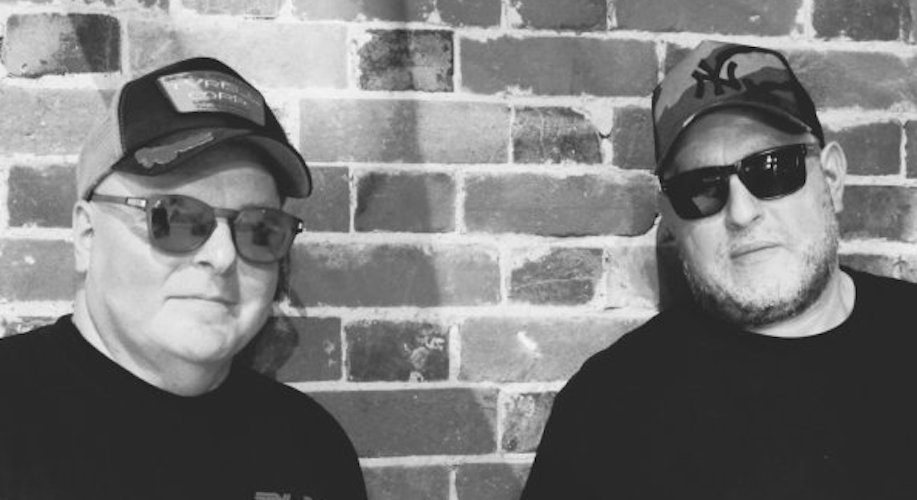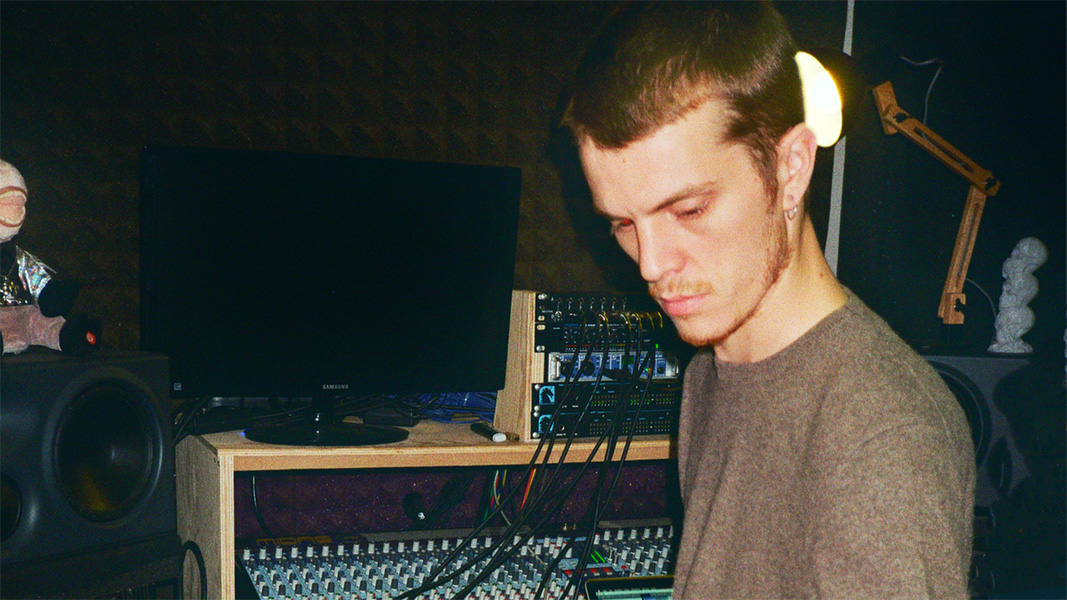South London producer DRINKS ON ME has just released the second in a trilogy of releases that shine a spotlight on the artist’s genre-bending and idiosyncratic nature whilst meandering slightly from his garage and bass roots in favour of eclectic songwriting, musical theory and a deeper connection between artist and listener.
Since his debut release in December 2019 on esteemed California-based label ‘Night Bass’, the development and crafting of a unique identity is evident through the progression of Drinks’ sound. Initially drawing on influences from 90s Garage, 00s Grime, and 2010s House music, Drinks On Me took little time in breaking through to some of the genre’s most reputable names, amassing support from the likes of Skream, AC Slater, and even childhood idol – Tinchy Stryder.
Not long after, a string of releases on esteemed labels such as Monstercat and Conducta’s Kiwi Rekords gained traction for the producer beyond his wildest dreams. The inclusion of his collaboration ‘Hit List’ with Bleu Clair on the Rocket League soundtrack, and generous Spotify support on ‘Lights Go Down’ certified a sound that was already growing in popularity across the globe.
We caught up with the emerging producer to chat all about his latest creative direction and the REBELLION EP.
WWD: Can you chat to us a little about your introduction to dance music? We believe you came up on Garage and Grime initially?
Initially, in electronic music, I really loved the future house movement of 2015 – the likes of Tchami, Oliver Heldens, and Curbi – I was an absolute fanatic of Spinnin’ Records and the Dutch Dance scene for a long time. But going further back than that, I really loved Grime and Garage growing up, blasting the likes of Giggs, Wiley, and 3 of a Kind on my Sandisk MP3 player in the back of my car while my parents drove around in the front. I definitely take inspiration from these genres in the music I make now, the grittiness of London Grime, the drums of Garage, the melodic elements and structures of Future House, and loads more influences that all blend into the sound I’m making!
WWD: Tell us a little about your creative redirection? What inspired this?
After a while as an artist, you begin to really figure out what you enjoy producing, what you find just comes naturally. For a long time I was making more bass-heavy music and would have called myself a Bassline/Bass House artist – mostly because I don’t have the music theory knowledge to create more melodic stuff. But I started self-teaching and infused more melodic elements in my music, like vocals or cool chords. When my confidence grew, I began to drift away from making Bassline, in favour of more songwriter/melodic stuff, which I enjoyed so much more. It’s also important to mention, I’ve always used music as an emotional outlet – a lot of the time my music reflects an emotion I was feeling when producing it, and there was a lot I needed to express through lyrics, chords, emotionally-provoking ambiences and so on that you just couldn’t express through drums, basslines, and club vocals.
WWD: Has there been much of a change in your creative production process since deciding to go down the electronic music songwriter route?
Oh 100% – things come so much more naturally to me now, I don’t have to motivate myself to produce anymore. I just write what I think and feel in my Notes section on my phone and begin to base a song around it.
WWD: The EP blends the worlds of underground dance music and pop sensibility – the relationship between dance music and pop music has never seemed so strong, is this something you would agree with and would like to see more of?
You only have to look at mainstage Coachella this year to realize electronic music is becoming increasingly viable in a pop space. The likes of Fred Again, Pink Pantheress and these recently viral stars have really paved the way for electronic music to be seen and heard, which I think is so essential, because for so long a lot of people have dismissed it as ‘not real music’. I’d love to be a contributor to the driving force of electronic music and make people realize that this is real music – times have changed and we’ve gone digital, and I think a lot of the resistance to the electronic and dance music scene is people’s reluctance to change, but we have to embrace it in my opinion.
WWD: Is there a story to be told with the REBELLION EP? If so, what is it? Some tracks are quite melancholic whereas others are quite comfortable – do they represent certain points of your life?
So Rebellion is the second EP in a trilogy series, going from Compliance to Rebellion to Freedom. I structured it like this because I wanted to take the listener on a journey – in more than one way. Firstly, it reflects the stages of my life. Compliance was a time when I was conforming to what other people wanted, working a job I hated, making music I didn’t like to appease other people. And Rebellion is a departure from that – it’s the transitional period from doing things for others to doing things for myself. This period in my life came with a lot of stress and anxiety, it was so uncomfortable to start putting myself first and living life for me. So there’s an underlying tone throughout the EP of melancholy, distress, and a lot of sadness along the way. But I ultimately wanted to show that this is all in the pursuit of being happy, so there’s also a kind of comfort and warmth in these tracks, which is probably why it feels a little bit weirdly comfortable to listen to as well – it’s like a blanket on a stormy day in a way.
WWD: What do you hope listeners take away from the EP?
I really hope people listen to Rebellion and realize this is me embracing myself and being vulnerable and honest. There’s a lot of deep emotion, which you’ll realize if you listen to ‘If I’m Dead’, which was written at an incredibly dark point in my life where suicide was a genuine and recurring thought that occupied my mind. But, conversely, there’s also ‘Don’t You’ with Why So Low, who’s one of my best friends and was an incredibly fun project – You & Me (Words) which was a song about sexual relationships, Ain’t Coming Back which was meant to be triumphant and self-loving. So I hope people listen in full and really feel and connect with the range of emotions that are on display throughout the EP!
WWD: The EP is the second in a trilogy of releases, what can we expect from the final project?
I’m actually still trying to figure that out myself! I keep chopping and changing what I want to include, because Freedom means something different every day to me. But I know it’s going to be a lot more emotional, a lot more melodic, and I’ve even started creating orchestral interludes with no drums, no ‘drop’ – which I haven’t seen a lot of in this musical space. I know it will make sense once I piece it together, but to me the only criteria for the songs I include is that it has to say, ‘I’m free’, ‘I’ve overcome an obstacle and put it in the past’.

